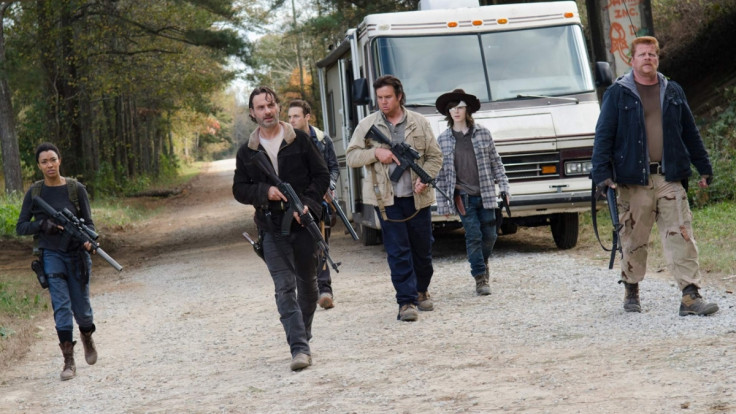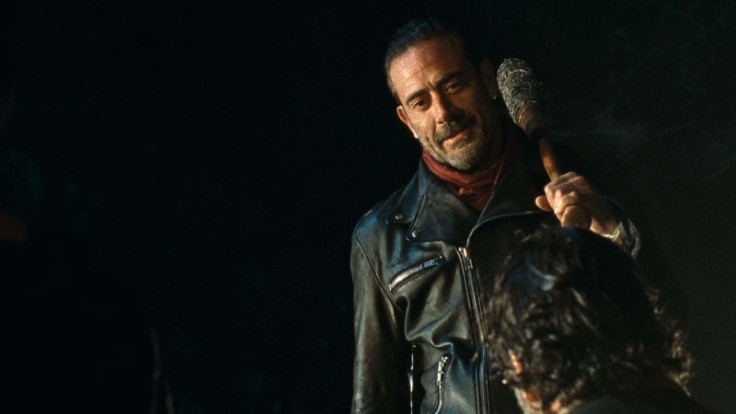The Walking Dead finale: Has binge-watching culture and streaming services made viewers too greedy?

Since the season six finale of The Walking Dead aired in the US on Sunday 3 April, many fans have been up in arms about how it all ended. After months of talking up big bad Negan's entrance into Rick Grimes and co's universe and warning viewers just how violent things would get, AMC seemingly pulled a fast one on the watchers and finished the episode on a cliffhanger.
Let us explain a little... Negan killed a presumably well-loved main character in the final minutes of the season's 16th episode – an event that we all knew had been coming for a long time, even since before season six began back in October 2015. Cast members such as Andrew Lincoln, Lennie James and Norman Reedus had all previously spoken out about the particular scene and how "heart-breaking" it was going to be. Producers, writers, directors... everyone was hyping it up.
Much to the viewers' dismay however, the victim of Negan's rage, and his barbed-wire baseball bat named Lucille, was seen from the receiver's POV. With a few blood splatters on the screen thrown in for good measure, the emphasis was solely on Negan as he swung and swung before eventually both the camera and subsequently the victim blacked out. It was brutal, raw and insanely tense, words that I've used to described The Walking Dead many times in the years that I have watched it. But sadly, not everyone saw the scene this way and felt cheated.

The problem, I think, is that we've become so accustomed to binge-watching and accessing information immediately that we seek instant gratification in every aspect of our lives. In particular, we do so when it comes to shows we religiously follow and can't bear the thought of being out of the loop for months on end. Before the internet and articles revealing spoilers, before we could start trending hashtags or stream our favourite series, we HAD to wait for answers, albeit week-to-week as storylines unfolded or year-to-year when seasons continued. We've been conditioned into this "one more episode" Netflix culture so much now, that no-one knows how to wait any more, and it's a shame.
That to me is part of what being a full-blown television addict is all about, and something I would never pass up. The characters of The Walking Dead have been in mine and other viewers' lives for six years now, and I'm not embarrassed to say I'm emotionally invested. If I'd have seen who would have died in the finale, I would have been devastated for a few days, but then it would have been forgotten before season seven. They would have been another Hershel, Andrea, Noah or Beth. Now, we will mourn that character's passing for months before we even find out who it is and it not only adds to my intrigue for the next instalment ten-fold but to my sadness too.
From a technical point of view from the writers of the show too, OF COURSE they're going to want to keep you guessing and tune into the premiere episode of the next season because they want to get the most viewers they possibly can. They can't be blamed for wanting the show to do well ratings-wise so that it can remain on the air, and this is arguably the best way to ensure that happens. You can clearly see it's a plot device too. Season seven will so obviously be about how that death deeply affects all of the other characters, so to start it off that way makes perfect sense.

Why is a major cliffhanger even such a big deal though? They're undeniably thrilling and we know we will get answers eventually. I personally loved the episode and didn't mind that I'd been made to think something was going to happen one way when it actually played out completely differently. The most exciting thing about television is that it can easily change its story-telling style and pacing because most of the time, that's what keeps you interested.
Obviously, being a fan of the show and having lapped up the promotion ahead of Negan's entrance for months, I too would have [weirdly] enjoyed seeing who was actually killed. However, I think leaving the audience in the dark was a smart move. To me, the writers did it to sum up what Negan has been about this whole time.
We've been hearing about him for so long, like the characters themselves have, and he only rocked up right at the last minute. His threat and scariness lied in the dread of him coming and while he's obviously a big bad in the making, he presented a more ominous terror when he wasn't on screen.
If we'd have seen the victim, the entire episode events would have been eclipsed by that heartbreak, and subsequently Negan's presence and arrival would have been lost. By having to wait to see who met their end, watchers can only judge Negan's final actions and motives and how he's affected the group as a whole by killing someone, not just the one who died. We can't escape the show's new villain's control, just as Rick and the rest of the gang seemingly can't either! For me, that's much more frightening than if they'd have purely resulted to a bloodbath. The death was the beginning, the catalyst for the real danger, not the end.
Many people seem to be arguing that the show-runners dangled a devastating death in front of us like a carrot to a donkey, knowing full well we were never going to get the pay off. But in my opinion, they never tricked us during any of their promotion... Negan DID kill someone. We just didn't see who it was. So quit your whining and just wait it out. Yes, it's agonising not knowing, but that's part of the fun. Let the passionate discussions as to who it was that met Lucille first commence, I say.
For more entertainment news follow A-List on Twitter @Alistinsider
© Copyright IBTimes 2025. All rights reserved.






















